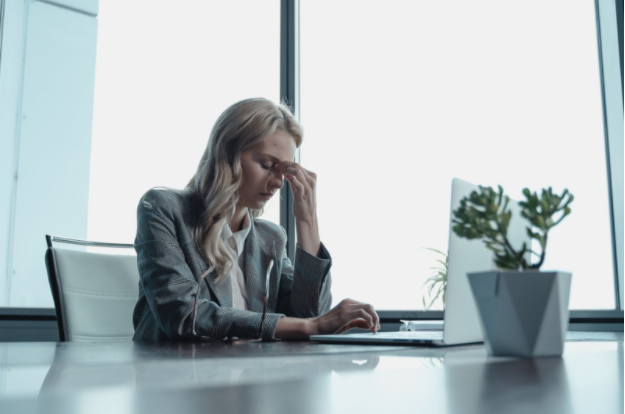Do you know that feeling of worry and fear that seems to creep during times where you’re feeling uncertain or stressed? That feeling is one that many people identify as anxiety and it can range anywhere from an occasional occurrence to an ongoing disorder.
Regardless of if you’re someone who only experiences anxiety from time to time, or someone who might be experiencing it as an ongoing disorder, there’s one thing you want to know: what causes anxiety? Knowing more about anxiety, the signs and triggers of it, as well as how to prevent it, can be a big help when it comes to understanding your mental health.
Read on to learn more about anxiety and how you might be able to avoid or prevent it in the future.
What Are Anxiety Disorders?
To start off, we need to have a clear understanding of what anxiety disorders are.
As you experience challenging or even dangerous situations, your body has a fight or flight response. This is either a reaction where you choose to stay and fight against the difficult situation at hand, or where you choose to flee from it.
When you have an anxiety disorder however, these feelings of fear and worry that you experience become ongoing. They can start to impact your daily routine even after there’s no longer a threat and can make you feel like the situation is much worse than it really is.
It’s important to know that people can experience anxiety disorders very differently from one another and a lot of the time don’t experience the same symptoms.
Symptoms of Anxiety
The symptoms of anxiety can vary from person to person. For some it may be a nervous feeling while for others it could be a racing heart or intense breathing. It’s common for those who experience anxiety to feel out of control.
Some of the most common symptoms of anxiety include:
- Restlessness: feeling tense or consistently nervous
- Increased Heart Rate: could also include heavy sweating
- Difficulty Falling Asleep: sometimes even insomnia
- Trouble Concentrating: also, an intense desire to want to avoid anything that may trigger your anxiety or make it worse
- Rapid Breathing: sometimes even hyperventilation
- Repetition: completing the same behaviors over and over again
- Digestive Problems: including gas, constipation and even diarrhea
It’s also common for some to experience anxiety through upsetting memories that feel out of their control, nightmares, or even panic attacks.
What is an Anxiety Attack?
Anxiety attacks are something that are seen in those with more extreme cases of anxiety. They involve the feeling of an intense worry, fear, or overwhelming apprehension. Again, the symptoms around anxiety attacks vary from person to person, however some of the most common ones include:
- Hot flashes or chills
- Feelings of distress
- Dry mouth
- A feeling of restlessness
- Sweating
- Feelings of fear
What are the Common Causes of Anxiety?
Anxiety can be caused by a number of things. Sometimes it isn’t a single factor that causes it, but rather a combination of things. Here are some of the things that could play a role in why someone may experience anxiety.
Ongoing Stressful Events
Say you take on a job change, are having relationship problems, or are changing up your living situation. The ongoing stressful events you experience in your life could be contributing to your ongoing anxiety.
Family History

Sometimes anxiety is something that’s passed on genetically. A parent who has experienced anxiety or any other mental health conditions for that matter, can pass them on to their child.
Remember that just because you have anxiety doesn’t mean it will for sure be passed on to your child.
Personality Factors
Different personality traits can be a reason why someone may experience anxiety. For example, those who have personality traits such as being timid, lacking self-esteem, are perfectionists, or become easily flustered have been known to develop anxiety as early as in their childhood.
Substance Use
If someone is to use alcohol or drugs, it could have an influence on their anxiety. There are situations where people can become reliant on a substance they believe is helping with their anxiety.
The truth is that substance use can actually worsen anxiety conditions, especially when the effects of the used substances wear off.
Other Mental Health Conditions
Some people will experience anxiety in combination with another condition such as depression. These paired conditions can worsen one another which means it’s important to seek assistance for each of the experienced conditions at the same time.
Triggers of Anxiety and How to Avoid Them
While there are certainly different causes of anxiety, sometimes there are certain triggers that can lead someone to experience symptoms of anxiety. Triggers will be different from person to person, but there are some common ones seen amongst those who experience anxiety.
Health Issues
There are a few health issues that are particularly upsetting and difficult to deal with such as cancer or a chronic illness. These types of health diagnosis can make someone’s anxiety worse or be the trigger of it.
The best way to reduce this type of anxiety is to be diligent in speaking with your doctor. It can also be helpful to discuss your anxiety over health issues with a therapist.
Medications

If you take certain prescription medications, they could be the trigger for symptoms of anxiety. The symptoms that some medications can cause your mind and/or body to feel off. This can lead to other symptoms of anxiety.
If you find that your prescriptions are making you feel anxious, be sure to talk to your doctor and discuss potential alternatives.
Caffeine
Are you someone who enjoys your morning cup of coffee? Or maybe even a few doses of caffeine throughout your day? Caffeine could be the reason your anxiety becomes triggered or becomes worsened.
Some are simply more sensitive to the effects of caffeine.
To help avoid becoming more anxious because of caffeine, try cutting back on your daily income or even substituting your regular intake for decaf options. This could potentially take the trigger away and help you feel a lot more at ease.
Skipping Meals
Eating less might just be the reason that your anxiety becomes triggered. That’s because when you skip a meal, your blood sugar can drop significantly.
Getting all of your meals in and ensuring those meals are healthy will provide you with the proper nutrients and energy you need. You might even consider adding snacks to your daily food intake in order to ensure you avoid low blood sugar that could lead to increased anxiety.
Negative Thinking
It’s true that your mindset has a direct influence on your body. In fact, your mind controls the majority of your body. If you’re in a negative mindset the words you tell yourself could be the trigger to your anxiety.
Instead of allowing yourself to think negatively, try to refocus your mind on positive thoughts that work to lift you up. Sometimes it’s best to speak with a therapist and make sure you’re taking care of your mindset.
Financial Concerns
Financial concerns are something that many people deal with, but for some it can be a major trigger to anxiety. Especially when it feels like you’ve fallen behind on your payments or bills.
The best way to deal with anxiety triggered by financial concerns is to seek professional help. Having someone to walk you through your concerns can help to ease your anxiety around them.
Stress
There are tons of things that happen every day that could make us feel stressed. However, it’s the feelings of chronic stress that can contribute to anxiety. These triggers can be harder to identify because they develop gradually over time.
Do your best to develop coping mechanisms and of course, seek help from a professional to learn how to better manage your ongoing stress.
Your Knowledge on What Causes Anxiety: Next Steps
Now that you know a little bit more about what causes anxiety and how to avoid those causes, you might be wondering what else you can do to prevent and treat your anxiety. One of the most innovative ways to relieve yourself from anxiety is with the Xen headphones by Neuvana.
This revolutionary product works by stimulating the vagus nerve. The headphones deliver electrical signals right to the vagus nerve which helps you to calm down and recover from stress.
The more glimpses of relaxation your brain gets through this method, the more time you’ll be able to spend in that state. And the calmer you are, the better equipped you are to deal with trying times and relieve any anxiety you may be experiencing.
Even better, Xen headphones are non-invasive and easy to use at any time and anywhere. Simply pop them in whenever you’re feeling your anxiety levels increase and you’ll be shifted into a calm and relaxed state of enhanced well-being.
Interested in getting to know the Xen by Neuvana headphones a little bit better? You can learn more about this revolutionary product here.
For Further Reading:





